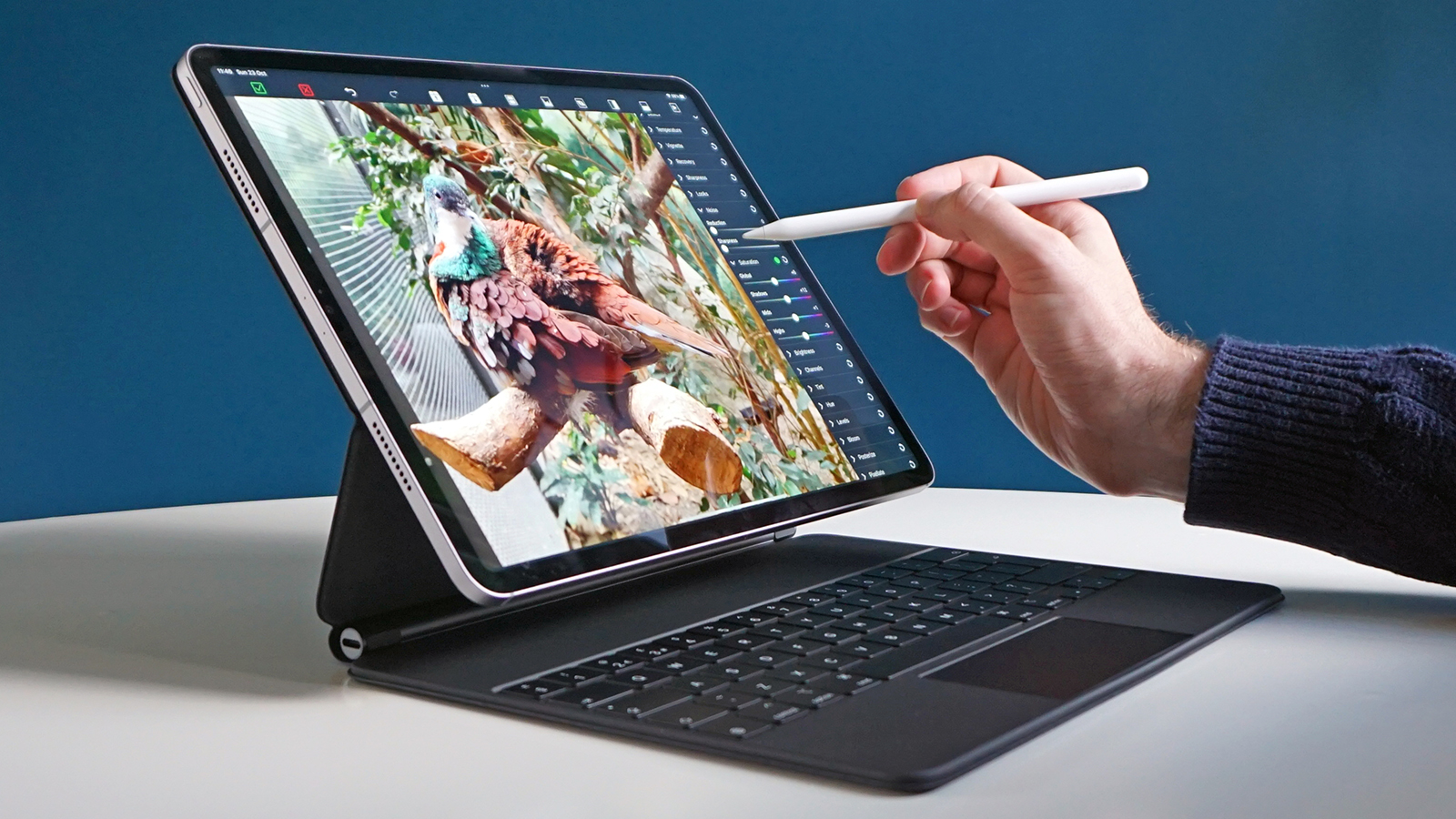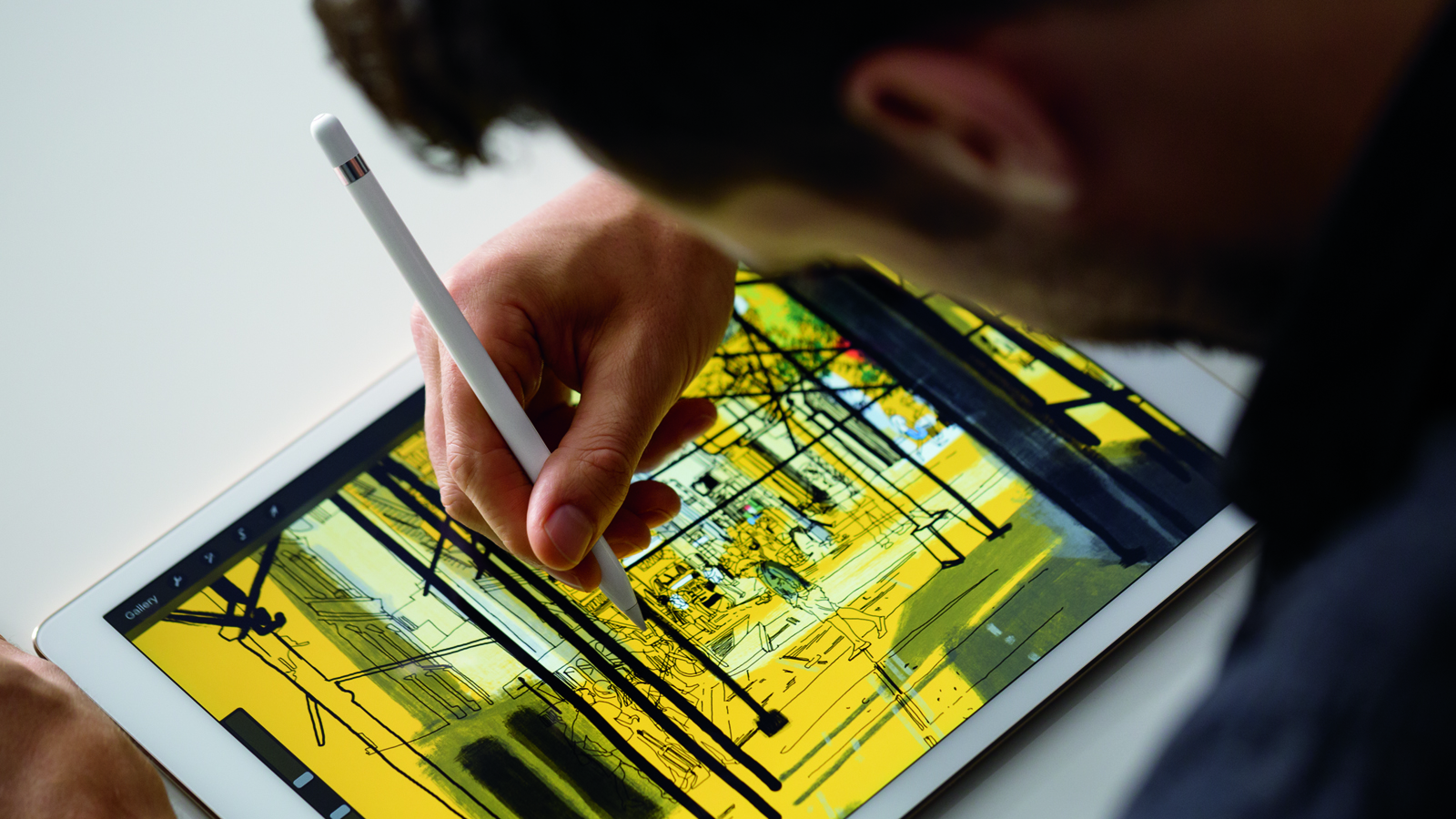
Sign up for breaking news, reviews, opinion, top tech deals, and more.
You are now subscribed
Your newsletter sign-up was successful
Rumors hinting at the development of OLED iPads and MacBooks have been swirling for a number of years, and the latest intelligence suggests that Apple’s inevitable pivot away from mini-LED panels will put the popular display technology firmly on the back-burner.
According to analyst firm Display Supply Chain Consultants (via The Elec), demand for mini-LED panels will increase in 2024 before plateauing in 2025 and beyond, as Apple turns its attention towards OLED displays.
That timeline fits with previous reports suggesting that the first OLED-equipped iPad Pro and MacBook models could arrive as soon as next year. It’s worth noting, though, that TV manufacturers including Samsung are expected to continue using mini-LED technology until 2027.
Why is Apple keen on the transition from mini-LED to OLED? For one, OLED panels are thinner and lighter than their mini-LED counterparts, which gives manufacturers the freedom to create sleeker laptop and tablet designs. They’re also a more appropriate option for foldable displays – and rumor has it that Apple is already hard at work on a foldable 20-inch MacBook.

But the jump in picture quality afforded by OLED panels is an even bigger draw than the technology’s design-based benefits. Compared to their mini-LED counterparts, OLED displays offer better contrast ratio, improved viewing angles and – when paired with dark wallpapers and themes – reduced battery drain, as pixels are lit individually (i.e. they don’t rely on dedicated backlighting).
Apple has used OLED technology in its best iPhones for several years now, which gives us a clue as to the sort of image quality we can expect from an OLED-equipped iPad. The transition to OLED display technology in Apple’s best iPads and MacBooks has taken longer because it’s more labor-intensive (read: costly) to produce OLED panels at larger sizes, particularly with Apple's reported technical constraints – word is that the company wants to use 'tandem-structure' OLED panels, which offer more brightness and pose a much lower risk of image burn-in (important for computers/tablets that people will own for years).
Smaller products, even bigger changes

Interestingly, other reports indicate that Apple will begin moving away from OLED technology in its pocket-sized product categories. According to recent rumors, the tech giant is committed to bringing micro-LED displays to new iPhone and Apple Watch models from 2024 onwards.
Sign up for breaking news, reviews, opinion, top tech deals, and more.
Per Bloomberg’s resident Apple expert Mark Gurman, the next-generation of Apple Watch displays will be “designed to offer brighter, more vibrant colors” and “make content appear like it’s painted on top of the glass.”
In other words, the future of iPhones and Apple Watches is – quite literally – bright, and it makes sense that Apple could be looking to introduce an OLED-equipped iPad or MacBook around the same time as its first micro-LED-equipped Apple Watch.
2024, then, has the makings of being a truly significant year for Apple's major product ranges – which would mark a refreshing change from the less-than-groundbreaking upgrades we've seen from the company's iPhones, iPads and MacBooks in the last couple of years (outside of the chips powering them).
For our verdicts on the latest devices in each of Apple's product categories, check out our iPhone 14 Pro Max review, iPad Pro 12.9 (2022) review and MacBook Air (M2, 2022) review.

Axel is TechRadar's Phones Editor, reporting on everything from the latest Apple developments to newest AI breakthroughs as part of the site's Mobile Computing vertical. Having previously written for publications including Esquire and FourFourTwo, Axel is well-versed in the applications of technology beyond the desktop, and his coverage extends from general reporting and analysis to in-depth interviews and opinion.
Axel studied for a degree in English Literature at the University of Warwick before joining TechRadar in 2020, where he earned an NCTJ qualification as part of the company’s inaugural digital training scheme.